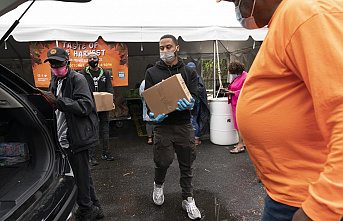E-cigarettes are sold in the United States for over a decade without any government oversight. The FDA is currently reviewing all vaping products in order to determine which products should be allowed to continue on the market, despite a deadline from the court.
In September, the agency stated that it had declined applications for more than one million e-cigarettes or related products. This was mainly because of their potential appeal to teens under 18. Regulators delayed decisions on major vaping companies, including Juul, which is still pending.
Tuesday's decision applies only to Vuse's Solo electronic cigarette and its tobacco-flavored nicotine capsules. According to data from Vuse, the e-cigarette significantly reduced smokers' exposure to harmful chemicals found in traditional cigarettes.
The FDA has now allowed the sale of the products in the United States. However, they stressed that the products are not safe or FDA approved and that those who do not smoke should avoid them.
Vuse Solo, a metal rechargeable device that can be used to smoke traditional cigarettes, was launched in 2013. FDA rejected 10 additional requests from the company to sell flavored products. The FDA is currently reviewing the request of the company to sell a menthol-flavored nicotine formulation.
"Today's authorizations represent an important step towards ensuring that all new tobacco products undergo FDA's rigorous, scientific premarket assessment," stated Mitch Zeller (director of the FDA’s tobacco center), in a statement.
"The data from the manufacturer shows that its tobacco-flavored products can be used by addicted adult smokers to reduce their cigarette intake, either entirely or in significant ways."
E-cigarettes were introduced in the United States in 2007 and promised to offer a safer alternative to traditional cigarettes. The device heats nicotine to create vapor which can be inhaled.
However, there is not enough evidence to prove that e-cigarettes can help smokers quit. The FDA's efforts to review vaping products were repeatedly thwarted by lobbying from the industry and competing political interests.
The vaping market has grown to include hundreds upon hundreds of companies that sell a variety of nicotine solutions and devices in different strengths and flavors. The majority of the market is controlled however by a handful of companies, including Juul Labs which is partly owned by Altria and Vuse.
Vuse is No. Vuse is the No. 2 vaping brand in America, behind Juul. It accounts for around a third of all U.S. retail sales. Its parent company R.J. Reynolds also sells Newport, Camel, and other top cigarettes.
A spokesperson for Vuse Solo stated in a statement that FDA's decision "confirms Vuse Solo products are suitable for the protection of public health, underscoring many years of scientific research and study."
According to the company, it still awaits an FDA decision regarding Vuse Alto, its most popular vaping device.
Companies must prove that their products are good for public health in order to stay on the marketplace. This means that the products must be proven to have a positive impact on public health.
Kenneth Warner, a University of Michigan tobacco expert, stated that the news was a positive step towards reducing the harmful effects of smoking. He regretted that the FDA could not endorse a vaping device supported by Big Tobacco companies.
Warner stated that the FDA's demands on companies who file these applications are so difficult to meet, only those with enormous resources and staff -- scientists, lawyers, researchers, etc. -- can file successfully.
He stated that smaller businesses and vape shops should have their own path to obtain product authorization.
In 2018, the FDA declared that underage vaping was an "epidemic". It has taken several measures to address the small, cartridge-based devices that sparked this problem. Separately, Congress increased the purchase age of all vaping and tobacco products to 21.
Data from earlier this year's survey showed Vuse to be the second most popular brand of e-cigarette among high school students who vape. It was preferred by 10%. Juul was cited less than 6% as the fourth most popular e-cigarette.
FDA stated that it had been aware of Vuse's popularity, but authorized its tobacco flavor "because these product are less appealing to youth" and "because authorizing these products might be beneficial" to adult smokers.
Puff Bar, a disposable ecigarette that can be used in flavored like strawberry, mango and pink lemonade was the most popular among teens. Disposable ecigarettes don't have to adhere to the same flavor restrictions as Juul.
The survey revealed a drop in teens vaping of almost 40% due to many children being forced to learn at home during the pandemic. Federal officials warned against misinterpreting the results as they were not collected in classrooms but online.












